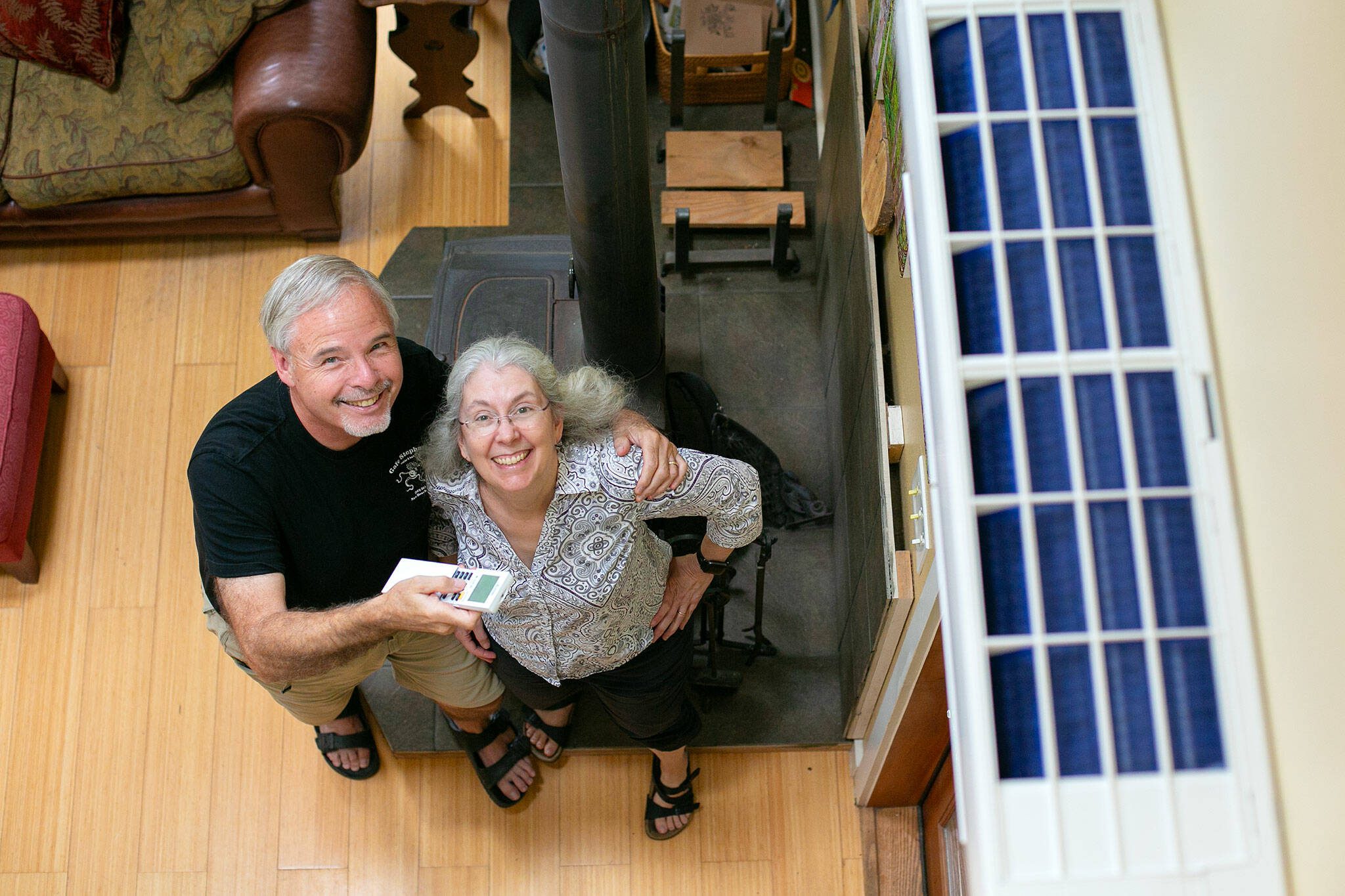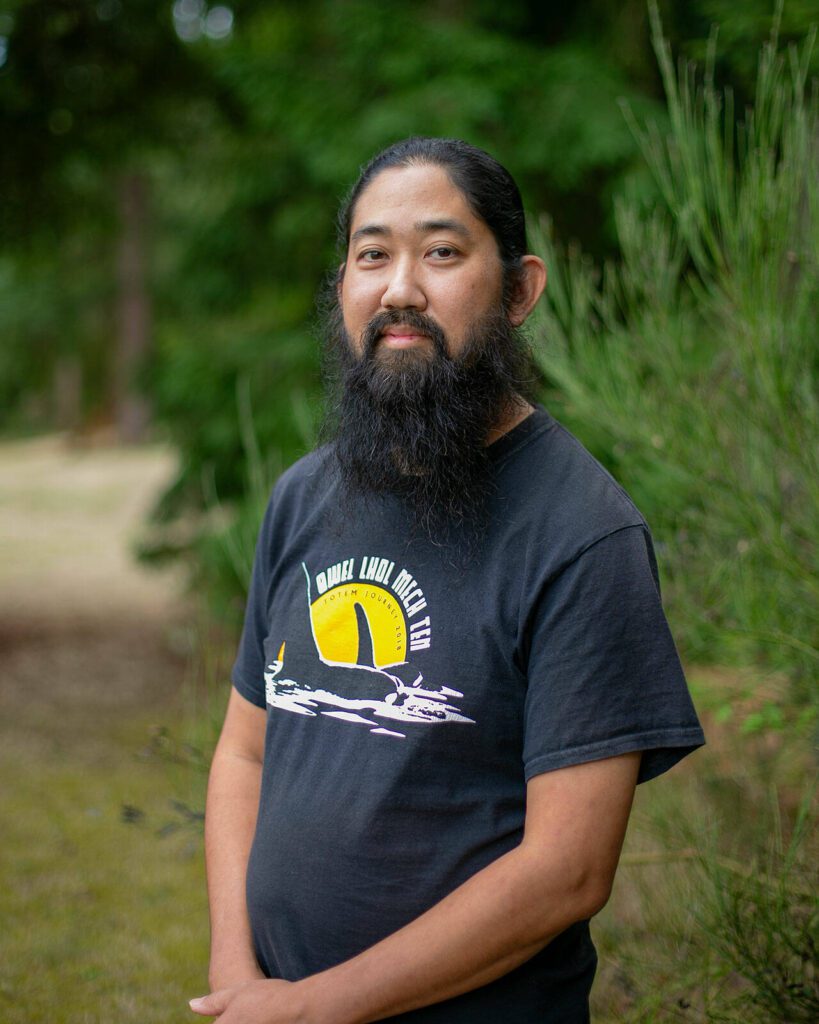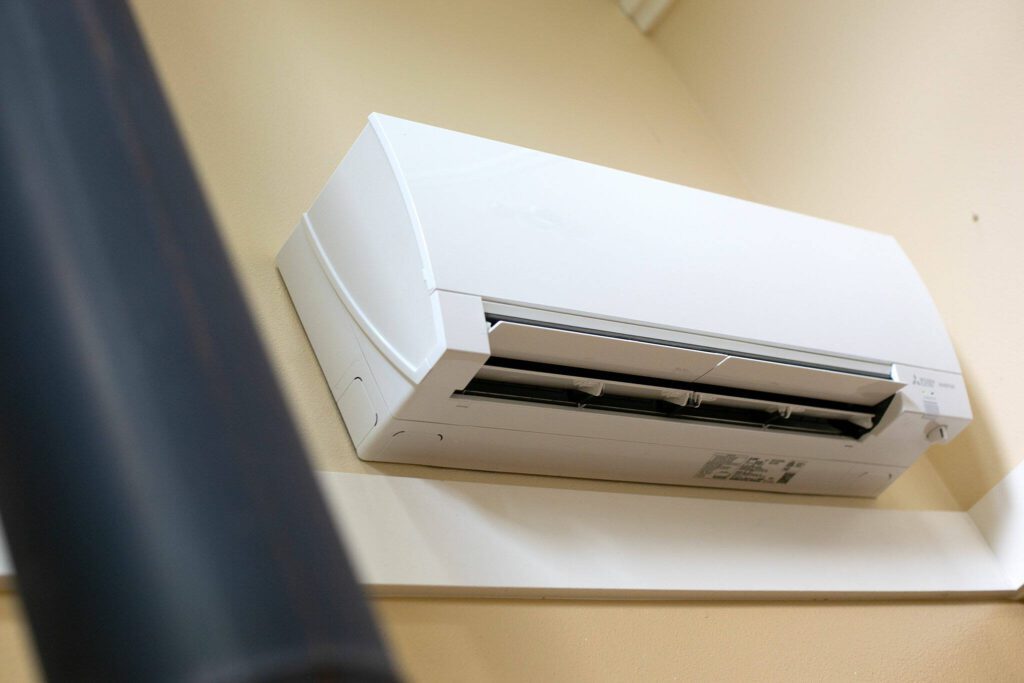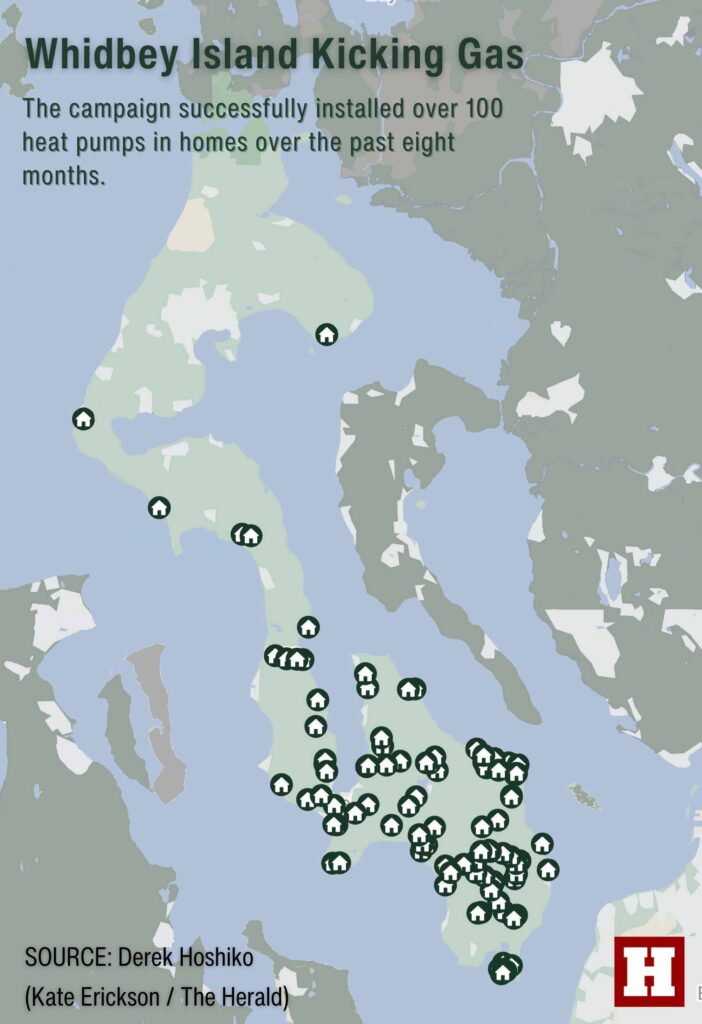LANGLEY — Driving around Whidbey Island in his 2022 Nissan Leaf, Derek Hoshiko said he feels a sense of responsibility.
“With the level of damage and destruction and the trajectory that we, as a civilization, are headed, I feel like there’s no reason for me to pursue anything that isn’t also in service,” he said.
Hoshiko, a climate activist, co-founded the zero waste group rePurpose in 2021 and serves on the Langley Climate Crisis Action Commission.
Most recently, Hoshiko directed an eight-month campaign that led 118 Whidbey Island residents to switch to a greener method of heating their homes. The method: ductless heat pumps.
The “Kicking Gas” initiative allowed Hoshiko to explore how individual changes can add up when a whole community buys in, he said.
Now, after exceeding their initial goal to get 100 homes to commit to installing heat pumps by June 2023, campaign leaders applied for another round of funding with plans to expand into Snohomish County and explore the possibility of all-electric homes.
‘A certain type of energy’
Space heating uses more energy than any other home system and typically makes up about 30% of utility bills, according to the U.S. Department of Energy.
Traditional fuel sources like wood, propane and oil also have to be transported to Whidbey Island, generating more emissions. That’s why heat pumps — a stationary, mostly self-sufficient heating and cooling source — seemed like a clear solution for island residents, Hoshiko said.
As a member of Langley’s crisis action commission, Hoshiko knew city leaders wanted to decrease fossil fuel use on the island.
Then last year, Hoshiko learned Washington State University was seeking grant proposals for pilot projects to provide energy-efficient upgrades. By August, the Kicking Gas Campaign was awarded $1 million to transition 100 homes to heat pumps by summer.
Campaign leaders offered clients 20% to 50% savings off the total cost. As long as they lived on the island and used wood, propane or oil for heating, residents were eligible. Leaders held sessions about once a month to discuss how heat pumps work, costs for installation and financing options.
The campaign also partnered with Salish Sea Cooperative Finance to create a microloans program — a key to making the project feasible for many residents. Loans were offered at an interest rate of 5%, with flexible repayment terms from one to five years, said Natalie Lubsen, one of the campaign managers for Kicking Gas. About a quarter of clients received microloans.
Ian Joseph Jackson said he wouldn’t have been able to participate without the financing option. Initially a client, now Jackson has taken on the role of arts and outreach coordinator for Kicking Gas. He said many residents desire change and so, like him, resonated with the program’s mission.
“They’re seeking voices and they’re seeking organizations with a certain type of energy to be able to lead that process,” Jackson said.
Last week, Hoshiko was on a Zoom call with a client concerned about how to clean and maintain a heat pump. Hoshiko simply flipped his camera toward his own pump and demonstrated how to clean the filters.
“It was definitely helpful to say, ‘I have one too,’” he said.
‘Youth hold so much power’
Following pressure from a coalition of South Whidbey High School students to accelerate local climate action in May 2021, the City of Langley declared a climate emergency.
The students are part of United Student Leaders, a group mentored by Hoshiko focusing on climate and social justice issues. Within their demands, the students asked the city to form a climate commission — a group that brainstorms climate initiatives.
“Why we actually applied at all” for the grant, Hoshiko said, “was because the youth had pushed on all these fronts to kind of pave the way.”
Being a part of the movement to get Langley to declare a climate emergency was uplifting, said Audrey Gmerek, a member of United Student Leaders.
“Youth hold so much power,” Gmerek said, “just being able to feel the effect we have when we organize and really put our voices at the front.”
She said members of United Student Leaders also reached out to local youth about the project, in search of interested families.
‘They’re kind of magic’
Despite their name, heat pumps can heat and cool a space.
“They’re kind of magic,” said David Gray, president of Island Ductless Heat Pumps, a heat pump installer for Kicking Gas.
Heat pumps release or capture energy through refrigerants, which travel between an indoor and outdoor unit, allowing heat to be pumped into or out of a home, Gray explained.
A common misconception among residents, Gray said, is that their heat pumps won’t function in cold weather.
Residents in colder regions may need another heat source. But because temperatures don’t often go into the negatives at sea level in the Pacific Northwest, homes don’t need backup heat.
Ductless heat pumps also improve air quality because they have built-in filters, Gray said. Premium heat pump systems can last 20 years, but cleaning and maintaining filters are essential to maximize the heat pump’s life, he said.
‘A community of people’
Jim and Chris Hall were the 100th clients for Kicking Gas, helping campaign leaders reach their projected goal.
The couple had moved to Whidbey Island from Alaska and were excited to heat their new home with 2 cords of wood, as opposed to six or eight.
“That felt environmentally friendly,” Chris Hall said.
But upon learning about the dangers of smoke pollution, Chris Hall said they started looking at heat pumps.
About six years ago, they had one installed in a woodworking shop, a short walk from the main house. They didn’t have air conditioning because they were accustomed to not needing it in Alaska. But during especially hot summers in recent years, Jim Hall would take naps in his shop: It was the coolest place he could find.
“If it was only heat we were worried about, we’d probably get by with the wood stove,” Chris Hall said. “But with the climate shifting toward hotter and hotter summers, it just became more and more obvious that we needed some solution that cooled as well.”
They thought installing a heat pump in their home would be too expensive. Then a friend told them about Kicking Gas.
“There was a community of people that were doing it all at once,” Chris Hall said.
The ‘all-electric’ home
In July, a year after they applied for their first grant, Kicking Gas leaders applied for another round of funding from Washington State University, seeking to install heat pumps in another 100 homes on Whidbey Island.
They also want to encourage residents to convert to “all-electric” homes, with hybrid hot water heaters and induction stoves. The campaign hopes to partner with installers by next year.
Hoshiko said Kicking Gas plans to continue working with the Sno-Isle Sierra Club to pilot a heat pump program in Snohomish County. Hoshiko said they hope to identify a “community” within the county to team up with.
When clients inquire whether electric heat sources are better for the environment, Hoshiko said he and other campaign leaders explain the electricity on Whidbey Island via Puget Sound Energy isn’t exactly “clean.”
About 50% of the company’s electricity comes from coal and natural gas. The 2019 Clean Energy Transformation Act requires Washington to commit to clean electricity by 2045. Hoshiko and campaign leaders tell clients their efforts with installing heat pumps are a part of a larger climate strategy that will keep improving in the future.
“We have the policy we need to clean the grid,” Hoshiko said. “What they’re doing to electrify their homes is an important part of the equation.”
Ta’Leah Van Sistine: 425-339-3460; taleah.vansistine@heraldnet.com; Twitter: @TaLeahRoseV.
Talk to us
> Give us your news tips.
> Send us a letter to the editor.
> More Herald contact information.





























